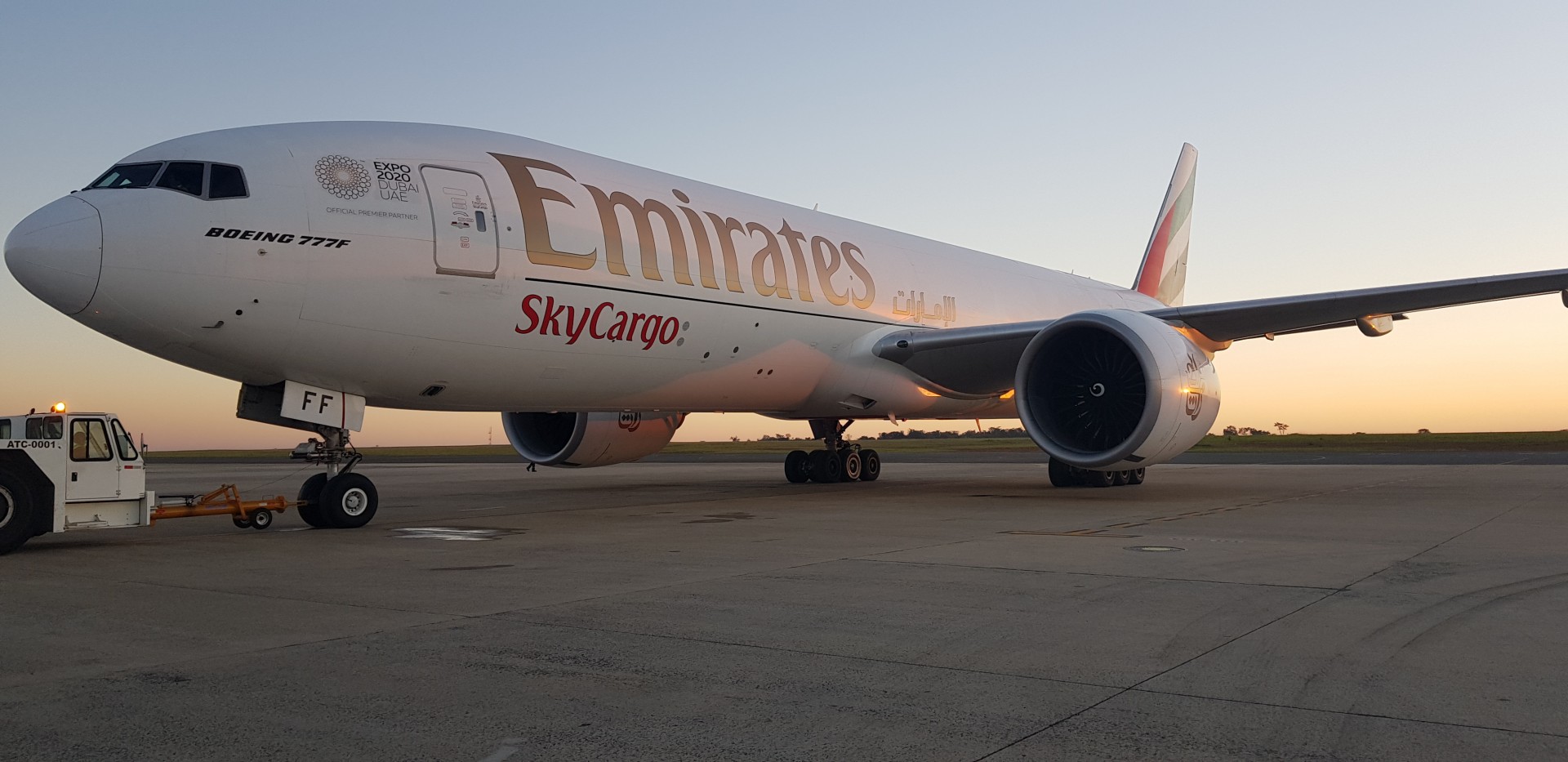Cargo the bright spot for Emirates as it notes first loss in more than 30 years
15 / 06 / 2021

Cargo revenue was the bright spot for the Emirates Group, which revealed its first loss in over 30 years in its financial results for 2020-2021.
The carrier recorded an annual loss of AED22.1bn (US$6.0bn) due entirely to the effect of the Covid pandemic which led to wholesale withdrawal of flights and border closures worldwide. In the previous year, 2019-2020, Emirates Group made a profit of AED1.1bn (US$288m).
The group said that Emirates SkyCargo “put in a stellar performance” by rapidly responding to new challenges, and contributing 60% of the airline’s total transport revenue.
While cargo tonnage carried decreased by 22% to 1.9m tonnes, due to reduced bellyhold capacity, cargo revenue soared by 53% to AED17.1bn (US$4.7bn), as yields surged 88% in the face of constrained global capacity.
The Group’s dnata handling arm saw cargo decline by 18% to 575,000 tonnes, reflecting the reduced available flight capacity in the market. Revenue from dnata’s UAE airport operations, including ground and cargo handling declined to AED1.7bn (US$455m).
The group’s freight arm quickly scaled up operations and rebuilt its cargo network to meet strong demand from shippers who were faced with a capacity crunch as the pandemic forced all airlines to drastically reduce flights. It supplemented its existing freighters by removing seats from 19 Boeing 777-300ER passenger aircraft to make room for more cargo and introduced new loading protocols to safely use overhead bins and seats.
Meanwhile, Emirates’ SkyCargo’s total freighter fleet stood unchanged at 11 Boeing 777Fs.
Emirates received three new A380 aircraft during the financial year and phased out nine Boeing 777-300ERs and five older A380s, leaving its total fleet count at 259 at the end of March.
Emirates SkyCargo also supported the worldwide distribution of Covid-19 vaccines, as well as humanitarian relief to Lebanon in the aftermath of the Beirut port explosion on August 4.
In October, it also set up a dedicated GDP-certified airside hub in Dubai for Covid-19 vaccines, and later partnered with UNICEF to quickly move vaccines to developing nations.
Group Sheikh Ahmed bin Saeed Al Maktoum, commented: “No one knows when the pandemic will be over, but we know recovery will be patchy. Until 2020-2021, Emirates and dnata have had a track record of growth and profitability, based on solid business models, steady investments in capability and infrastructure, a strong drive for innovation, and a deep talent pool led by a stable leadership team. These fundamental ingredients of our success remain unchanged. Together with Dubai’s undiminished ambitions to grow economic activity and build a city for the future, I am confident that Emirates and dnata will recover and be stronger than before.”














